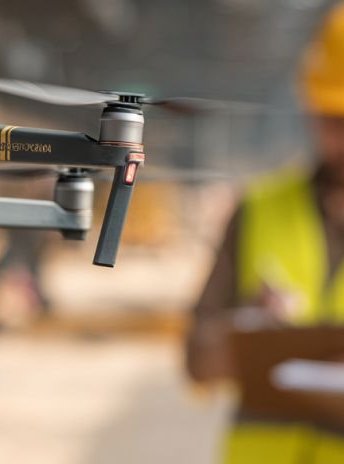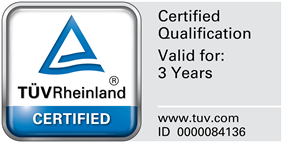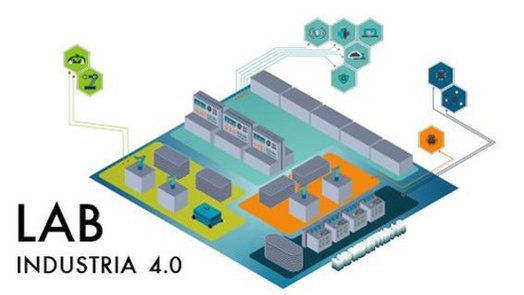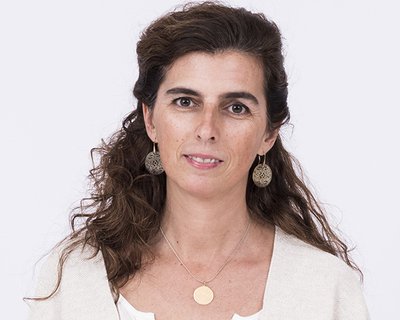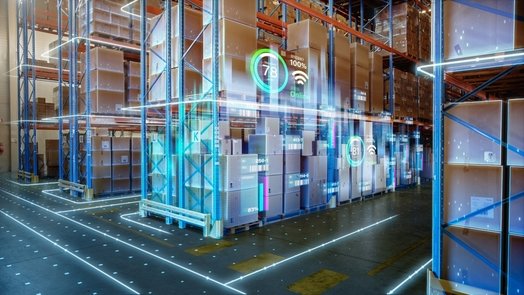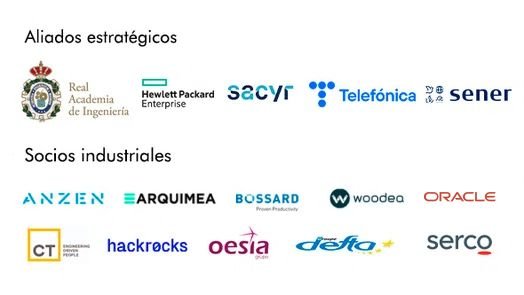-10% Discount on tution fee. Only until february 28th!
Lead the logistics of the future with a master’s degree fully focused on smart and digital logistics.
The Master's Degree in Logistics is an official qualification designed to train professionals who can design and optimise smart, connected and sustainable supply chains adapted to the needs of today's industry. Throughout the programme, you will explore the key areas of modern logistics, including operations management, transport, and the application of emerging technologies such as AI, the Internet of Things (IoT), big data, and automation.
With the master's degree in Logistics in Madrid:
- You will be part of Spain's first University School of Sustainability, integrating the UN Sustainable Development Goals relating to transport and logistics into your training and preparing you to lead Logistics 4.0.
- You will master emerging technologies in an innovative environment, such as Laboratory 4.0. There, you can experiment with solutions that will be used in tomorrow's logistics.
- Thanks to our partnerships with leading companies, you will boost your employability from day one. These partnerships will connect you with the professional world and prepare you to obtain highly valued certifications.
- You will get access to the prestigious TÜV Rheinland digital logistics processes specialist certification, which will strengthen your professional profile.
Official degree issued by Universidad Europea de Madrid
| Campus-based | Villaviciosa de Odón | 9 meses, 60 ECTS | Start: October 2026 | School of Architecture, Engineering, Science and Computing - STEAM | Escuela de Sostenibilidad |
Escuela de Sostenibilidad
Are you passionate about the future of our planet? Do you want to become an agent of change and build a more sustainable world? Train at the first Escuela de Sostenibilidad in Spain and turn your passion into your profession. More than just education, an experience.
Learn from the best professionals in the sector with a realistic, hands-on approach.
Gain an internationally recognised qualification that will open doors to the job market.
Join a community of students and professionals who are passionate about sustainability.
Develop projects and solutions that will make a difference to our planet.
Testimonials
Course programme
Course programme structure
Subject | ECTS | Type | Language in which module is taught |
6 | COMPULSORY | Spanish (es) | |
6 | COMPULSORY | Spanish (es) | |
6 | COMPULSORY | Spanish (es) | |
6 | COMPULSORY | Spanish (es) | |
6 | COMPULSORY | Spanish (es) | |
6 | COMPULSORY | Spanish (es) | |
6 | COMPULSORY | Spanish (es) | |
6 | COMPULSORY | Spanish (es) | |
6 | COMPULSORY | Spanish (es) | |
6 | COMPULSORY | Spanish (es) |
An intensive programme to become a specialist in just one year
In a single year, the programme provides comprehensive preparation to meet the present and future challenges of logistics by combining a solid technical foundation, a focus on innovation and sustainability, and real-world practical application.
1
First Semester: Fundamentals of Logistics Management
The first semester of the master's degree program provides solid training in the essential principles of logistics and operations management. This training block establishes the necessary foundation for critically understanding the challenges facing the sector and prepares students to confidently approach the more advanced scenarios covered in the second semester.
- Supply Chain Operations
The entire supply chain is examined, including flow planning and coordination between suppliers and customers. The course also covers multimodal transport and INCOTERMS, both of which are essential for understanding how different mobility options are combined in a globalized context.
- Inventory and Warehouse Management
We will analyze both traditional models and the latest practices aimed at optimizing resources, reducing costs, and ensuring product availability.
2
Second Semester: Innovation, Transformation, and Sustainability
This semester focuses on the future of logistics, emphasizing innovation and digitalization.
- Logistics 4.0, Technological Innovation and Practical Work in the Industry 4.0 Lab: The master's degree combines AI, data analytics and digitalization to anticipate demand and optimize processes. Students apply these tools in the laboratory by programming collaborative robots and automating logistics tasks.
- Project Management: Another fundamental area is project management applied to logistics, which provides students with the tools they need to coordinate teams, lead strategic initiatives and execute complex projects.
- School of Sustainability: At the same time, the program develops a comprehensive vision of sustainable logistics, aimed at reducing environmental impact and implementing responsible practices that address the challenges of the ecological transition.
- Master’s Thesis and Professional Internship: The master’s degree culminates with the Master’s Thesis (TFM), a practical or research project through which students rigorously demonstrate everything they have learned during the programme. It also includes a professional internship in companies — an opportunity to apply knowledge in a real-world setting, gain experience, enhance employability and build a professional network in a sector with high demand for specialists.
Your next step could start here
Can you imagine interning at one of these companies? To give you an idea of how far you could go, here are some companies that have chosen to invest in our talent.


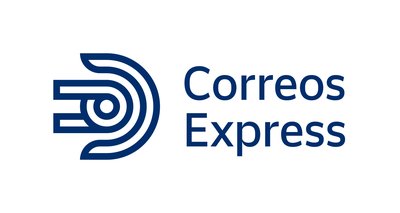


More information
Course calendar
2021/2022
Places for new students
80 places.
Professional internships
Develop your personal and leadership skills at the European University
- Company internships are central to your postgraduate training. Gaining experience linked to what you learn on your course is the best gateway into the job market and making the most of your university experience. There are two types of internship: curricular (included in your course programme) and extracurricular (which you can do on a voluntary basis).
- You will be able to access internships in companies from day one. Internships are monitored by the company and your academic supervisor, with interim and final assessment reports.
Learning outcomes
Knowledge
- CON01 - Describe the general fundamentals of logistics, demand planning and management and the supply chain in general.
- CON02 - Define the principles governing strategic inventory management, including resource planning and scheduling.
- CON03 - Integrate the sustainable development goals to logistics processes, in particular circular logistics.
- CON04 - Identify the phases of a technological innovation project geared towards the logistics industry.
Competencies
- CP01 - Ability to calculate, forecast, plan over time and manage inventories, including from a financial point of view.
- CP02 - Ability to design, analyse and evaluate all kinds of logistics networks, including capillary, international and reverse networks.
- CP03 - Ability to design and organise supply chains to meet specific goals.
- CP04 - Ability to manage supplier chains to meet specific goals, including from a financial point of view.
- CP05 - Ability to identify, write down and write off obsolete inventory.
- CP06 - Ability to define and evaluate the requirements that support systems should satisfy in order to meet specific goals.
- CP07 - Ability to identify, select and implement Industry 4.0 solutions to meet specific goals.
- CP08 - Ability to create and design specific innovation strategies to transform the logistics industry.
- CP09 - Ability to manage all phases of an innovation project geared towards the logistics industry.
- CP10 - Ability to select, implement and evaluate UN Sustainable Development Goals for logistics.
- CP11 - Ability to manage all costs and financial issues related to logistics operations, including innovation projects.
- CP12 - Ability to practically apply and integrate the knowledge, skills and abilities acquired during the master's degree in relation to a business activity linked to logistics.
- CP13 - Ability to individually prepare, present and defend an original final project in a public setting before an academic panel, bringing together the skills acquired over the course of the degree.
- CP14 - Demonstrate ethical conduct and social commitment at work, as well as awareness of inequality and diversity.
Skills
- HAB01 - Design logistics networks including transport and reverse logistics networks.
- HAB02 - Propose improvements and best practices in the planning and execution of supply chains and inventory management.
- HAB03 - Evaluate performance-based logistics plans, establishing plans for improvement.
- HAB04 - Develop strategies for innovation and implementing Industry 4.0 solutions.
- HAB05 - Develop logistics and business transformation projects.
- HAB06 - Apply Industry 4.0 tools and technologically innovative solutions to logistics.
Outlook for the logistics sector
The unstoppable growth of e-commerce is transforming the sector, creating new opportunities and challenges. Demand for fast, efficient, and sustainable logistics solutions is greater than ever. However, this progress brings technological and environmental challenges that only the most skilled professionals will be able to address. In order to respond to a constantly evolving market, the sector needs leaders who understand digitalization, sustainability, and innovation.
The pandemic boosted e-commerce turnover in Spain
The sector was already doing well, with turnover up by 23.5% year-on-year in the third quarter of 2019 to 12,493 million euros, according to CNMC data. By 2020, the sector's turnover had increased by 55%.
There will be growing demand for 145 different job profiles in the sector in the decade to 2030
17 of these will be completely new job types, while there will be especially high levels of demand for 30 of these profiles, according to the Basque Mobility and Logistics Cluster.
According to the World Economic Forum, by 2025 the value of logistics operators will have risen to 1.5 trillion euros
The completion of the digital transformation of the sector will add a further 2.4 trillion euros in profits.
Faculty
Our teaching staff
- Adriana Molero Alonso
Master’s degree course director
Adriana has over 20 years of experience and holds a doctorate in physics from the Complutense University of Madrid and a master's degree in integrated logistics support from the University of Comillas. She began her professional career at the Spanish National Research Council (CSIC) where she worked on research projects and oceanographic campaigns funded by the European Union. She has published papers and presented the results of her research at national and international scientific conferences.
She was operations officer for the CTBTO nuclear test monitoring network (Vienna, Austria). She currently provides business intelligence services to international organisations while teaching data analytics at various universities, and is course director for the Master's Degree in Logistics at the Universidad Europea de Madrid. - Daniel Latorre Recio
Construction engineer, architect and expert in the management of international R+D+i projects. Development Director at CityLogin Iberia. With more than 10 years of professional experience in operations management, sustainable development and processes departments in the logistics and transport sector. - Roberto Aguado Puebla
Extensive career in the logistics sector, supply chain management, transport and business strategies. Founder of Circular Logistic, a boutique logistics consultancy, for over 20 years he has been helping companies in sectors such as automotive and retail optimize their supply chains for greater efficiency and circularity.
He holds a master's degree in logistics management and supply chain management, and a master's degree in international trade from ESIC.
He currently combines his work as a consultant with teaching as an affiliated lecturer on the Master's Degree in Logistics at the Universidad Europea de Madrid. - Luis Miguel Aparicio Ortega
A computer engineer (UPM) with a diploma in Advanced Logistics Management (CESEDEN), he also holds certifications in PRINCE, PMP, INCOSE, and Lean Six SIGMA Yellow Belt.
Head of logistics management system at ISDEFE, with a team of around 40 working on projects related to digital transformation, the development and maintenance of logistics information systems and consultancy on the NATO cataloguing system. With more than 10 years of experience in universities as an associate lecturer, he currently teaches on the Master's Degree in Logistics at the Universidad Europea de Madrid. - Jesús Manuel Poza Carrasco
With more than 30 years of experience in managing and leading technological and organisational projects, Jesús Poza, PhD, PMP exMBA, TOGAF9© is a senior professional who has worked mainly in the energy industry sector and in IT services consultancy in a range of environments including the public and private sectors and multinational companies.
He has extensive experience in organisational models, innovation, digital transformation, process modelling, and outsourcing strategies.
He is a member of the knowledge reuse research group at the Universidad Carlos III de Madrid, where he has researched and produced his doctoral thesis on the use of artificial intelligence techniques in defining the specifications and scope of projects. - Francisco Lozano Blanco
Degree in industrial engineering, specialising in machinery, from the Madrid School of Industrial Engineering (UPM). MBA from The Power MBA.
Professional with more than 10 years of experience as a project engineer and logistics engineer. He is currently Sales and Business Development Director at SIAISA and combines his professional career with teaching at the Universidad Europea de Madrid. - Cristina Álvarez Requena
She holds a doctorate in industrial engineering in the field of environmental technologies from the University of Valladolid. Managing Director of Las Rozas Innova.
With more than 20 years of experience in research, development and technological innovation, she has worked on numerous research projects, including projects to develop registered patents, and has participated in the publication of many scientific articles. She has worked in project and team management and coordination roles.
Member of the Board of Directors of the Madrid IoT Cluster and associate instructor on the Master's Degree in Logistics at the Universidad Europea de Madrid.
Admissions
Start your future at Universidad Europea
You can become a student at Universidad Europea in three easy steps.
1
Admission exams
Start your admission process by calling +34 918257503 or request information and our advisors will contact you.
2
Place reservation
Once you have been admitted, secure your place by paying the reservation fee.
3
Enrollment
Submit the required documents to formalise your enrollment.
Scholarships and financial aid
We want to help you. If you want to study at Universidad Europea, you will have at your disposal a wide selection of own and official scholarships.
Credit recognition and transfers
You don’t have to stick with something you don’t like. That’s why we’ve designed specific plans for credit recognition and transfers.
Request your online credit recognition review, transfer your academic file and start studying at Universidad Europea.
Entry profile and admission requirements
Candidates who have not previously passed a course on production and operations for social science degrees must undertake additional training.
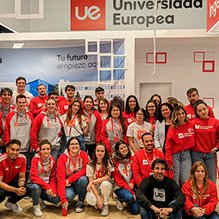
Come and see the campus
Get to know the facilities and discover why Universidad Europea is made for you.
Frequently Asked Questions
What does a logistics course cover?
It covers all aspects of logistics including:
- Supply chains.
- Distribution chains.
- Transport methods.
- Warehouse management.
- Customer service.
What do I need to know to become an operations manager?
An operations manager optimises costs and adds value to the business by leveraging the three key pillars: service, flexibility, and innovation. It requires a global vision and an open mind in order to understand customers’ needs and offer the most suitable services and the solutions that best meet those needs. You also need to have knowledge of marketing and innovation.
Where can I study the Master’s Degree in Logistics?
The Universidad Europea has state-of-the-art facilities on the Villaviciosa de Odón Campus, including the Industrial Robotics and Mechanical and Additive Manufacturing Laboratory, the CISCO Networking Academy Lab, the Computer Systems Laboratory and the Control and Automation Engineering Lab.
Why study a Master's Degree in Logistics?
A Master's Degree in Logistics equips you with advanced logistics expertise and strengthens your business management skills, ensuring a competitive advantage in a rapidly evolving industry.
